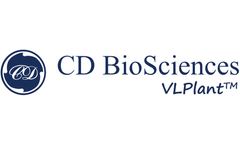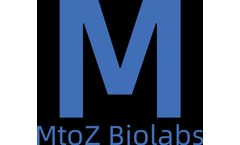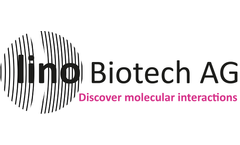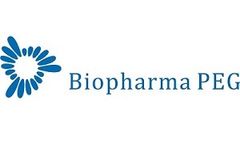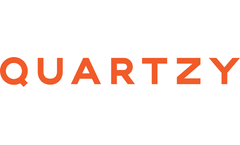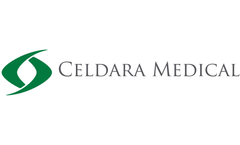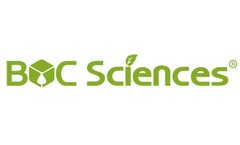Antigen Receptor Articles & Analysis: Older
25 articles found
These technologies allow scientists to cut, insert, or modify specific DNA sequences, enabling the customization of T cells to recognize and attack disease-specific antigens. Applications in Cancer Therapy One of the most promising applications of gene editing in primary T cells is in cancer therapy. By engineering T cells to express chimeric antigen ...
In addition, gene delivery can be used to modify vulnerable cells, analogous to T cells, to express antigen receptors that specifically kill cancer cells. Overall, gene delivery has great eventuality as an important tool for the development of new and personalized cancer drugs technology. ...
As a biology researcher, staying at the cutting edge of technology is crucial to advancing research in the field. The emergence of chimeric antigen receptor T-cell (CAR-T) therapy has revolutionized the treatment of certain cancers, providing a promising targeted approach to eliminate cancer cells. ...
The T cell antigen receptor (TCR) is a characteristic marker of T cells, playing a crucial role in the immune system. ...
CAR-T/CAR-NK Cells Development for Drug Delivery Systems As a groundbreaking advancement in immunotherapy, CAR-T (Chimeric Antigen Receptor T-cell) and CAR-NK (Chimeric Antigen Receptor Natural Killer) cells have shown remarkable success in treating certain cancers. These personalized cell therapies involve modifying a ...
Car-t cell therapy involves genetically engineering T cells isolated from patients or allogeneic donors to express chimeric antigen receptors (CAR) that specifically recognize and kill tumor cells. ...
When a cell binds both the T-cell receptor (the receptor specific for a given antigen, that gives a T cell its specificity) and the checkpoint molecule (PD-1 in the displayed figure), the T cell becomes inactivated. ...
So far, anti-mesothelin antibody-drug conjugates have been successfully used to treat mesothelin-expressing solid tumors, including ovarian cancer, pancreatic cancer, and malignant mesothelioma; and mesothelin targets chimeric antigen receptor (CAR) T cell therapy also showed significant antitumor effects. ...
Selection of ADC Target Antigens Currently, the target antigens of approved ADC drugs are typically specific proteins that are overexpressed in cancer cells, including HER2, trop2, nectin4, and EGFR in solid tumors, and CD19, CD22, CD33, CD30, BCMA, and CD79b in hematological malignancies. Driven by basic research in oncology and immunology, the selection of ...
Cytokines-mediated signaling is a primary way of immune system communication. The common gamma-chain family of cytokines is a set of six cytokines that signal through the common cytokine γ chain receptor (γc/CD132/IL2RG). These cytokines include IL-2, IL-4, IL-7, IL-9, IL-15, and IL-21. Besides the IL-2RG receptor subunit, the γc family cytokine receptors include IL-2RB ...
Chimeric antigen receptor T cells (CAR-T) and T cell antigen receptor chimeric T cells (TCR-T) are currently the "top stream" in adoptive T cell tumor immunotherapy. ...
Celdara Medical, LLC today announced that the National Cancer Institute of the National Institutes of Health (NIH) has awarded a Small Business Innovation Research (SBIR) Phase I award to fund the company’s proof of concept studies on a new platform to improve chimeric antigen receptor (CAR) T cells efficacy to treat solid tumors. Dr. Joana ...
Researchers at Massachusetts General Hospital (MGH) have found that interferon gamma receptor (IFNgR) signaling is essential for the susceptibility of CAR-T cell immunotherapy to kill malignant gliomas. ...
At present, chimeric antigen receptor T cell therapy (CAR-T) has made significant achievements in the treatment of specific hematological cancers, allowing patients with relapsed/refractory disease to survive longer and become healthier, but in clinical studies, cell therapy has actually not been successful in the treatment of patients with solid tumors, in part ...
Truncated O-glycans (Tn, TF, and sialic acid Tn antigens), gangliosides (GD2, GD3, GM2, GM3, and rockulose-GM1), globular serine glycans (globo-H, SSEA-3, SSEA-4), Lewis antigens, and polysialic acid are the most well-studied TACAs. ...
Adoptive cell transfer (ACT) therapy is one of the most effective therapeutic options for tumor immunotherapy that is currently emerging in clusters. Chimeric antigen receptors (CARs) and engineered T cell receptors (TCRs) are the main adoptive immunotherapies in recent years. TCR-engineered T cells express tumor ...
T cells can be separated into two subpopulations based on the expression of T-cell receptors (TCRs). αβ T cells, expressing expressing αβ TCR, recognize peptide antigens, such as those expressed by cancer cells. αβ T cells are the effector cells of adaptive immunity, which exert cytotoxicity in a major histocompatibility complex (MHC)-restricted manner. ...
The FDA approved CAR-T cell therapy, also known as chimeric antigen receptor T-cell therapy, as the first CAR-T cell therapy to be marketed for the treatment of leukemia in 2017, ushering in a new age of CAR-T cell therapy. ...
Using the power of large data and advanced computational methods, researchers can identify peptides on the surface of tumor cells and can target "peptide-centric" chimeric antigen receptors (PC-CARs): a new design of T cells that stimulates the immune response to eliminate tumors. ...
ADC generally includes three parts, monoclonal antibody drugs targeting specific antigens, drugs with cytotoxins, linkers linking antibodies and small toxin molecules. ...


